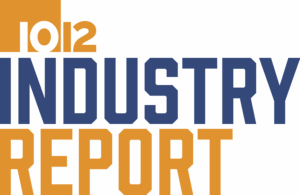Regina Davis was introduced to the world of engineering during a scheduled STEM Day at her middle school. It ignited a spark in her that would never burn out.
“It put me on the path to becoming an engineer, even though at the time I didn’t really understand what an engineer did,” says Davis, who was appointed as ExxonMobil Baton Rouge’s refinery manager in September.
She would go on to earn a degree in chemical engineering at Louisiana Tech University as a first-generation college graduate, then land her first gig at ExxonMobil’s Chalmette Refining as a process contact engineer. While there, she would be promoted to roles of increasing responsibility, while also earning her MBA from the University of New Orleans.
In 2008, Davis was transferred to Fairfax, Virginia, and then in 2012 to the ExxonMobil refinery in Beaumont. In 2017, she relocated to the Strathcona Refinery in Edmonton, Alberta, where over a period of years she would be promoted from technical manager to operations manager, then eventually plant manager in 2021.
With the influence afforded by her plant manager’s role, Davis would be instrumental in the creation and sponsorship of the Women’s Interest Network and would become the co-chair of the inaugural Women United Initiative for the United Way Alberta Capital Region.
Nevertheless, Davis jumped at the opportunity to come back home to Louisiana. “This has been such a blessing,” she says. “Twenty-five years ago, I wouldn’t have believed you if you’d told me I would be here, as the first person of color in this role and only the second female.”
Since then, she has used her platform to promote the benefits of diversity in the workplace. She has also been active in recruiting, serving as a member of both the ExxonMobil Louisiana Tech University and the ExxonMobil National Society of Black Engineers recruiting teams. “I feel having a diverse workforce gives us a competitive advantage,” Davis says. “It gives us the opportunity to be innovative and creative, while leveraging the unique perspectives that everyone brings to the table.”
What experience has most impacted your career?
When Hurricane Katrina slammed into the Gulf Coast in 2005, I was only six months into my first supervisory role at Chalmette Refining. I was just getting to know the ins and outs of being a new supervisor, while also dealing with people who had been significantly impacted by the storm—including myself. My husband and I were in a FEMA trailer for well over a year, and my oldest daughter was in Houston with my parents because the schools were closed.
I learned a lot during that period. One of the things that impressed me the most was watching my plant manager focus on the people and their needs, even as we struggled to get our infrastructure up and running. At the time, I was the supervisor over the utilities complex, which was vital to getting the rest of the plant operational.
There was a lot of pressure on me, and we did things that were very innovative to make it happen. Through it all, I really felt cared for by the company, and I tried to exhibit that same level of caring to my own team.
What’s your leadership style?
I think of myself as a servant-leader, so I lean into authentic engagement with my employees. While managing the Strathcona refinery in Alberta, I made a point to engage with our workers at a personal level as best I could.
That’s difficult to do in Baton Rouge, where the refinery has 1,200 employees and there’s another 800 on the chemical side.
With an organization of this size, the biggest challenge for me is figuring out a way to engage in an authentic manner. I’ve intentionally set aside time in my calendar for field tours so that I can interact with senior leaders, operations and others. And I’ve made sure that my direct reports are multiplying those efforts.
What’s your professional passion?
I am deeply committed to mentoring the next generation. That gives me a lot of energy. I was introduced to engineering at a young age, so I find it rewarding to create or support programs that promote STEM, or when I mentor others.
Recently, we sponsored an ‘Introduce a Girl to Engineering Day’ and we had some 70 to 80 young ladies from north Baton Rouge come to our facility. They were able to do experiments, hear from other engineers, and I got to share my journey. We’re also working to strengthen our connection with Southern University to attract more folks to our workforce.
Tell us about the future.
I am so proud of the way ExxonMobil has leaned into the energy transition. At the end of the day, we must continue meeting our customers’ needs, while doing it in a way that creates a more sustainable environment. We’re taking a very strategic approach in that regard, but it’s the right one.









